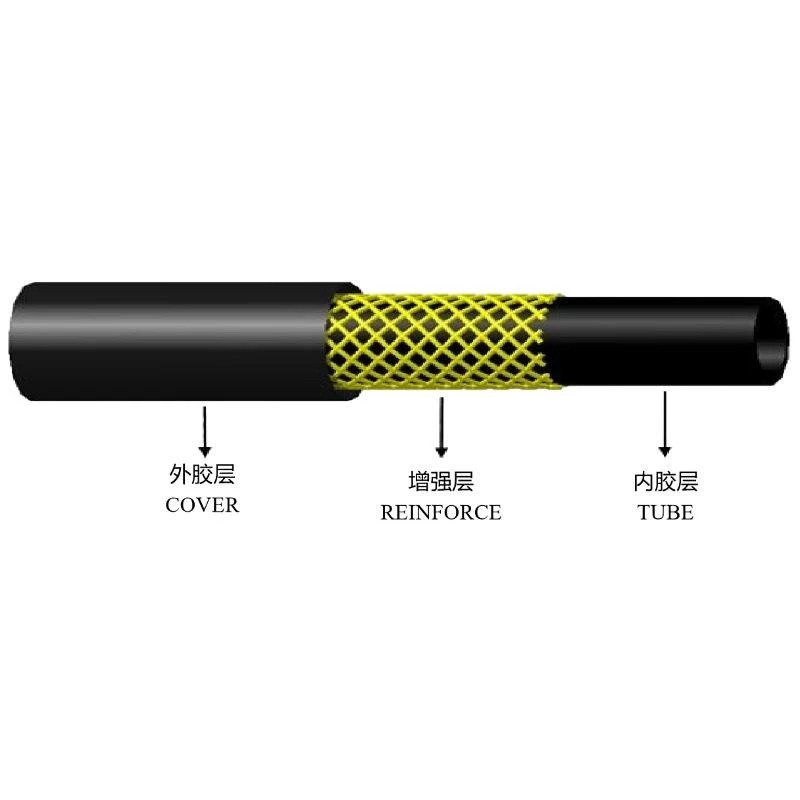Understanding the Function and Importance of Oil Coolant Lines in Engines
Dec . 14, 2024 16:48 Back to list
Understanding the Function and Importance of Oil Coolant Lines in Engines
The Importance of Oil Coolant Lines in Engine Performance
In modern automotive engineering, the efficiency and longevity of an engine largely depend on its cooling systems. Among the various components that contribute to effective thermal management, oil coolant lines play a pivotal role. These lines are integral to maintaining optimal engine temperatures and ensuring proper lubrication, thereby enhancing overall performance and reliability.
Understanding Oil Coolant Lines
Oil coolant lines are conduits that transport engine oil, often in conjunction with a dedicated cooling medium, to regulate the temperature of the oil as it circulates through the engine. These lines facilitate heat exchange between the engine oil and a coolant, usually liquid, which is designed to dissipate heat away from the oil. The primary function of oil coolant lines is to prevent overheating, thereby safeguarding engine components from thermal stress and potential damage.
How Oil Coolant Lines Work
The operation of oil coolant lines is relatively straightforward yet vital for the engine's health. As the engine runs, combustion generates significant heat. This heat can cause the oil to become excessively hot, which hampers its ability to provide adequate lubrication. The oil's viscosity diminishes when exposed to high temperatures, leading to increased friction and potential wear and tear on engine parts.
Oil coolant lines mitigate this risk by directing hot engine oil to a cooler, where it is passed through a series of cooling fins or tubes. This structure maximizes surface area and facilitates efficient heat transfer to the ambient environment or to a dedicated cooling fluid. Once cooled, the oil returns to the engine, ensuring that it maintains a temperature within a safe operating range. This cycle is crucial for maintaining oil viscosity and enhancing its lubricating properties.
The Benefits of Efficient Oil Coolant Lines
1. Enhanced Engine Efficiency By maintaining optimal oil temperatures, coolant lines help improve the overall efficiency of the engine. Cooler oil enhances lubrication, resulting in lower friction and better fuel efficiency. This can lead to improved performance and lower emissions.
2. Extended Engine Life Excessive heat can accelerate the aging process of engine components, leading to premature failures. By using oil coolant lines to keep oil at a safe temperature, the longevity of vital engine parts, such as bearings, pistons, and cylinder walls, can be significantly increased.
oil coolant line

3. Improved Oil Performance The integrity of engine oil diminishes under high temperatures. By preventing overheating, proper coolant lines allow the oil to maintain its ideal viscosity, ensuring it can effectively lubricate, clean, and protect internal components.
4. Reduced Risk of Engine Damage Overheating can lead to dire consequences, including engine seizure or catastrophic failure. Oil coolant lines act as a safeguard against these risks, allowing engines to perform at their best without worrying about heat-induced damage.
5. Consistent Performance Across Conditions Whether an engine is operated in harsh winter conditions or under extreme heat, oil coolant lines ensure that the oil remains within its optimal temperature band. This consistency is crucial for maintaining reliable engine performance regardless of external conditions.
Design and Maintenance Considerations
To ensure that oil coolant lines function effectively, several design and maintenance considerations need to be addressed. Quality materials are essential; lines must be resistant to high temperatures and pressures. Moreover, proper placement within the engine compartment is critical for maximizing efficiency.
Routine maintenance, including regular inspections for leaks, corrosion, or blockages, is essential to prevent potential failures. Any sign of wear or damage should be addressed immediately to avoid risking engine performance.
Conclusion
Oil coolant lines may seem like a small, often-overlooked component within the intricate system of an engine, but their significance cannot be overstated. They are vital for regulating oil temperatures, ensuring proper lubrication, and preventing overheating. By enhancing engine efficiency, extending component life, and reducing the risk of damage, oil coolant lines contribute substantially to the overall health and performance of an engine. As automotive technology continues to advance, the design and function of these lines will undoubtedly evolve, further enhancing their importance in modern engines.
In conclusion, understanding the function of oil coolant lines is crucial for enthusiasts, mechanics, and engineers alike. As we strive for more efficient and sustainable vehicles, the optimization of every engine component, including coolant lines, will play an essential role in the future of automotive engineering.
